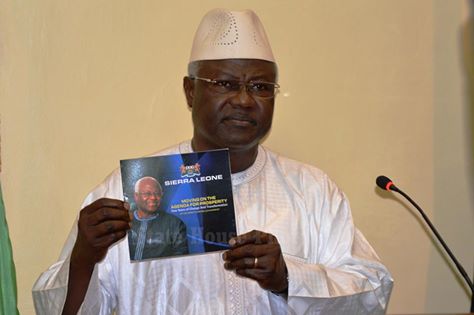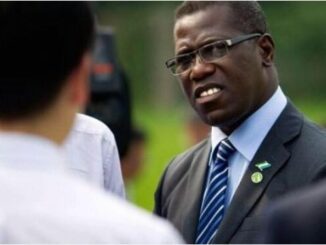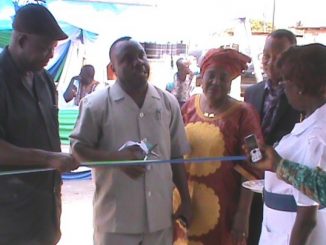
The African Leadership magazine is published by African Leadership (UK) Limited, a company registered in the United Kingdom (Company No. 07435198). The magazine focuses on bringing the best of Africa to a global audience, telling the African story from an African perspective; while evolving solutions to peculiar challenges being faced by the continent today.
Since its maiden edition in August 2008, African Leadership Magazine has grown to become a leading pan-African flagship leadership-focused publication read by over 240, 000 targeted international investors, business executives, government policy makers and multilateral agencies across Africa, the Middle East and Asia, Europe and the US. It is distributed at major international and African Leadership events around the world. It is a niche and unbiased African voice born out of a desire to ameliorate the lot of Africans by focusing on individuals and corporate bodies that are known for their legacy-based approach to leadership. We believe in building sustainable leadership in Africa through exchange of ideas in tandem with global best practices. The magazine shall continually seek to herald the dawn of a new Africa as the continent of promise and global leadership, championed by people of integrity and resilience who are rising from the challenges of an unpleasant past; thereby preserving a legacy for future generations of our people.
Our mission is to promote innovation, entrepreneurship and development in Africa, thereby heralding the emergence of a new Africa, growing beyond potential into true greatness.
AFRICAN LEADERSHIP MAGAZINE
________________________
COCORIOKO EDITOR’S NOTE :
The prestigious African Leadership Magazine has adjudged Sierra Leone one of the 10 most democratic countries in Africa. This is another big boost for PRESIDENT ERNEST KOROMA and a major achievement for the President and the ruling All People’s Congress ( APC ) .This distinction is also a shame and a defeat to the President’s antagonists in the opposition Sierra Leone People’s Party ( SLPP) , dissident print and online media outlets at home and abroad and power-hungry psychotics , who delight in concocting misleading stories to the world that President Koroma is undemocratic and dictatorial.
It is shameful to them that neither world leaders nor international organizations and development partners buy that crap, demonstrated by the tremendous respect and goodwill the President and his government continue to enjoy from the international community.
WE BRING YOU BELOW THE AFRICAN LEADERSHIP MAGAZINE REPORT :
10. Sierra Leone

The government of Sierra Leone is the governing authority of the Republic of Siera Leone, as established by the Sierra Leone Constitution. The Sierra Leone government is divided into three branches: the executive, legislative and the judicial. The seat of Government of Sierra Leone is in the capital Freetown.
The government of Sierra Leone takes place in a framework of a presidential representative democratic republic, whereby the President of Sierra Leone is both head of state and head of government, and of a multi-party system. Executive power is exercised by the president. Legislative power is vested in by the Parliament of Sierra Leone
The judiciary of Sierra Leone is independent of the executive and the legislature. Civil rights and freedom of religion are respected. A critical press continues to operate, although the government has intervened for alleged inaccurate reporting, using the 1965 Public Order Act which criminalizes libel.
9. Tanzania
Tanzania takes place in a framework of a unitary presidential democratic republic, whereby the President of Tanzania is both head of state and head of government, and of a multi-party system. Executive power is exercised by the government. Legislative power is vested in both the government and parliament. The party system is dominated by the Chama Cha Mapinduzi (Revolutionary State Party). The judiciary is independent of the executive and the legislature.
8. Senegal

Senegal takes place within the framework of a semi-presidential, democratic republic. The President of Senegal is the head of state and the Prime Minister of Senegal the head of government. Executive power in Senegal is concentrated in the president’s hands.
While legislative power is technically vested in both the government and the parliament, the parliament rarely introduces legislation or votes down legislation proposed by the government. Similarly, although the Judiciary is theoretically independent of the executive and the legislature, the executive branch seems to exert undue control over the judiciary.
Senegal is one of the few African states that has never experienced a coup d’état or exceptionally harsh authoritarianism. Léopold Senghor, the first president after independence, resigned in 1981, handing over the office of president to his Prime Minister, Abdou Diouf. The present president, Macky Sall, was elected in competitive democratic elections in March 2012.
Senegal has a reputation for transparency in government operations. The level of economic corruption that has damaged the development of the economies in other parts of the world is very low. Today Senegal has a democratic political culture, being part of one of the most successful democratic transitions in Africa.
7. Lesotho

Lesotho takes place in a framework of a parliamentary representative democratic constitutional monarchy, whereby the Prime Minister of Lesotho is the head of government, and of a multi-party system. Executive power is exercised by the government.Legislative power is vested in both the government and the two chambers of Parliament, the Senate and the National Assembly. The Judiciary is independent of the executive and the legislature.
6. Benin

Benin takes place in a framework of a presidential representative democratic republic, whereby the President of Benin is both head of state and head of government, and of a multi-party system. Executive power is exercised by the government.Legislative power is vested in both the government and the legislature. The Judiciary is independent of the executive and the legislature. The current political system is derived from the 1990 Constitution of Benin and the subsequent transition to democracy in 1991.
5. South Africa

The Republic of South Africa is a parliamentary representative democratic republic. The President of South Africa, serves both as head of state and as head of government – in the same manner as prime ministers of other nations, the President is elected by the National Assembly (the lower house of the South African Parliament) and must enjoy the confidence of the Assembly in order to remain in office. South Africans also elect provincial legislatures which govern each of the country’s nine provinces.
Since the end of apartheid in the 1990s the African National Congress (ANC) has dominated South Africa’s politics. The ANC is the ruling party in the national legislature, as well as in eight of the nine provinces (Western Cape is governed by the Democratic Alliance). The ANC received 62.15% of the vote during the 2014 general election. It had received 62.9%[1] of the popular vote in the 2011 municipal election. The main challenger to the ANC’s rule is the Democratic Alliance, led by Helen Zille, which received 22.23% of the vote in the 2014 election. Other major political parties represented in Parliament include the Economic Freedom Fighters and the Inkatha Freedom Party, which mainly represents Zulu voters. The formerly dominant New National Party, which both introduced and ended apartheid through its predecessor the National Party, disbanded in 2005 to merge with the ANC. As of 2009, Jacob Zuma serves as the South African president.
4. Namibia

Namibia takes place in a framework of a semi-presidential representative democratic republic, whereby the President of Namibia is both head of state and head of government, and of a multiform multi-party system. Executive power is exercised by the government. Legislative power is vested in both the government and the two chambers of parliament. The judiciary is independent of the executive and the legislature.
3. Botswana

Botswana takes place in a framework of a parliamentary representative democratic republic, whereby the President of Botswana is both head of state and head of government, and of a multi-party system. Executive power is exercised by the government. Legislative power is vested in both the government and the Parliament of Botswana. Since independence the party system has been dominated by the Botswana Democratic Party (BDP), which has never lost power since independence. The Judiciary is independent of the executive and the legislature.
Botswana is formally a multiparty constitutional democracy. Each of the elections since independence in September 1966 has been freely and fairly contested and has been held on schedule. The country’s small white minority and other minorities participate freely in the political process. There are two main rival parties and a number of smaller parties. Some argue that the openness of the country’s political system has been a significant factor in Botswana’s stability and economic growth. General elections are held at least every 5 years
2. Ghana

Ghana takes place in a framework of a presidential representative democratic republic, whereby the President of Ghana is both head of state and head of government, and of a multi-party system. The seat of government is at Golden Jubilee House.Executive power is exercised by the government. Legislative power is vested in both the government and Parliament. The Judiciary is independent of the executive and the legislature.
The constitution that established the Fourth Republic provided a basic charter for republican democratic government. It declares Ghana to be a unitary republic with sovereignty residing in the Ghanaian people. Intended to prevent future coups, dictatorial government, and one-party states, it is designed to establish the concept of power sharing. The document reflects lessons learned from the abrogated constitutions of 1957, 1960, 1969, and 1979, and incorporates provisions and institutions drawn from British and American constitutional models. One controversial provision of the Constitution indemnifies members and appointees of the Provisional National Defense Council (PNDC) from liability for any official act or omission during the years of PNDC rule. The Constitution calls for a system of checks and balances, with power shared between a president, a unicameral parliament, a council of state, and an independent judiciary.
1. Mauritius

Mauritius takes place in a framework of a parliamentary democracy. The separation of powers is among the three branches of the Government of Mauritius, namely the legislative, the executive and the Judiciary, is embedded in the Constitution of Mauritius.
Being a Westminster system of government, Mauritius’s unicameral house of parliament officially, the National Assembly, is supreme. It elects the President and the Prime Minister. While the President is voted by a single majority of votes in the house, the Prime Minister is the MP who supports a majority in the house.
The President is the Head of State while the Prime Minister has full executive power and is the Head of Government who is assisted by a council of Ministers. Mauritius has a multi-party system.[1]
Historically, Mauritius’s government has been led by the Labour Party or the MSM for the exception of short periods from 1982-1983 and 2003-2005 where the MMM was at the head of the country.




